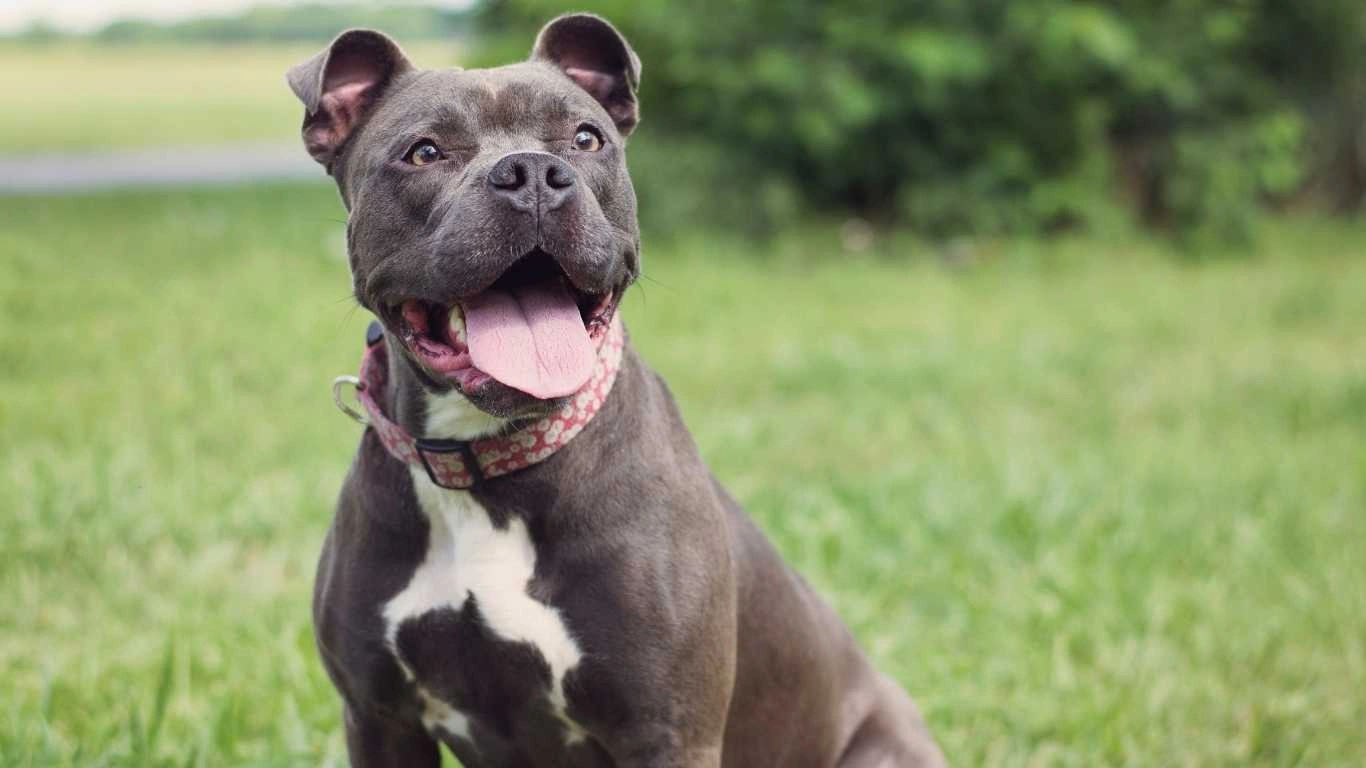Can Dogs Eat Beetroot? The Surprising Truth Every Owner Should Know
Can dogs eat beetroot? That’s a question I get asked more often than you’d think—especially from loving pet parents who want to share their healthy habits with their pups. Working as an Animal Care Specialist in both pet clinics and shelters, I’ve seen plenty of curious canines crunch down on a slice of beet when no one’s looking. But is it actually safe—or even beneficial—for them? Let’s dig into it (pun intended!) and talk about what I’ve learned from hands-on experience and trusted nutritional research. Spoiler alert: there’s more to this vibrant veggie than meets the eye.
Is Beetroot Safe for Dogs?

First things first—yes, beetroot is generally safe for dogs to eat in moderation. In my time working at a shelter, we had a few pups who would sneak a bite when we prepared veggie mixes for the older dogs with sensitive tummies. The key is in how it’s prepared and how much you’re offering.
Beetroot, especially when cooked and served plain (no spices, oils, or salt), can be a nutritious treat. But raw beetroot? It’s a bit harder on their digestive system, and some dogs just don’t tolerate it well. I remember a Boxer mix named Luna—she scarfed down some raw beet slices one day and ended up with an upset tummy and very pink… everything. Yup, beetroot can tint their pee and poop, and that can be pretty alarming if you’re not expecting it!
Nutritional Value of Beetroot for Dogs
So, why even consider beetroot in your dog’s diet? It’s not just a colorful root—it’s packed with essential nutrients that can actually benefit dogs, especially if they’re older or dealing with minor health issues.
- Fiber: Helps regulate digestion. Great for dogs with occasional constipation or softer stools.
- Folate (Vitamin B9): Supports cell and tissue health—super important for pregnant dogs or growing pups.
- Manganese and Potassium: Promote a healthy nervous system and muscle function.
- Vitamin C: While dogs naturally make their own, a little extra from veggies can offer immune support, especially in older dogs.
- Antioxidants: Beetroot is rich in betalains, which have anti-inflammatory and detoxifying properties.
From what I’ve seen, dogs with low energy or joint stiffness sometimes perk up after a few weeks of a vet-approved diet that includes antioxidant-rich foods. While beetroot won’t cure arthritis, adding small amounts to a balanced diet might give them a gentle boost.
How Much Beetroot Can Dogs Eat?

Moderation is the golden rule. A few thin slices of cooked beetroot once or twice a week should be more than enough for most dogs. For small breeds, even less—think one or two bite-sized pieces max.
I’ve personally added small portions of steamed beetroot into homemade meals for dogs on special vet-recommended diets, particularly those needing fiber or struggling with digestion. But again, always talk to your vet before switching up your dog’s meals. I’ve seen well-meaning owners add “superfoods” that didn’t agree with their pets, and it’s never worth the risk without a professional’s thumbs-up.
Risks to Be Aware Of
While beetroot can offer health perks, there are a few things to watch out for:
- Kidney Stones: Beets are high in oxalates, which can contribute to kidney stone formation—especially in dogs prone to urinary issues.
- Beeturia: This isn’t dangerous, but beetroot can turn your dog’s urine and stool reddish. It’s harmless but can look scary if you’re not expecting it!
- Sugar Content: Beets contain natural sugars, so they’re not ideal for diabetic dogs or those needing a strict weight-control diet.
One of the dogs I cared for, an adorable senior Dachshund named Bobo, had early kidney issues. We had to cut out anything with high oxalate content—including spinach and beets—just to be safe. So again, knowing your dog’s health history is crucial before adding anything new to their bowl.
Signs Your Dog May Not Tolerate Beetroot

Every dog is different, and just like people, some pups might not agree with certain foods—even if they’re technically safe. Keep an eye out for these symptoms after trying beetroot:
- Vomiting or nausea
- Diarrhea or loose stools
- Itching or signs of food intolerance
- Red urine or stool (harmless, but startling!)
If any of these symptoms show up after giving your dog beetroot, it’s probably best to skip it moving forward and chat with your vet. Trust your gut—and your pup’s gut, too!
Best Ways to Serve Beetroot to Dogs

Alright, so you’re thinking about giving beetroot a shot—awesome. Now let’s talk about the how. From my time preparing meals for shelter pups with dietary restrictions, I’ve learned that how you serve a food can make all the difference. Beetroot is no exception. The goal is always to make it safe, tasty, and digestible.
Cook It, Don’t Fry It
Boiling or steaming beetroot is the way to go. Trust me—don’t even think about tossing it in oil or seasoning it like you’re prepping a fancy salad. Dogs don’t need garlic, onion, butter, or anything like that. In fact, garlic and onions are toxic for them. Keep it plain and simple.
Peel the beetroot first to get rid of any lingering dirt or tough skin. Then chop it into bite-sized pieces and boil until it’s soft. I usually test it with a fork—it should go through easily. Let it cool completely before serving.
Pureed Beetroot
If you’ve got a picky eater or a small breed dog, try pureeing the cooked beetroot. You can mix a spoonful into their regular kibble or homemade meal. I used to do this with an older Labrador named Marley who had dental issues. The soft texture made it easier for her to eat and digest.
Dehydrated Treats
Want something crunchy? You can dehydrate beetroot slices (no seasoning!) for a homemade chewy snack. These were a hit in the clinic break room—yes, even some of the vet techs snuck a few because they smelled amazing fresh out of the dehydrator!
Can Dogs Eat Beetroot Daily?

This is one of those “just because you can, doesn’t mean you should” situations. Even though beetroot is full of nutrients, it shouldn’t become a daily staple. Dogs thrive on variety and a balanced diet, and too much of anything—even the good stuff—can throw things off.
If you’re feeding beetroot a few times a week in small portions, you’re golden. Daily feeding could lead to a build-up of oxalates, which isn’t great for kidney health. I’ve seen cases where dogs developed urinary issues after long-term overfeeding of oxalate-heavy foods, including beets and spinach. It’s just not worth the risk.
Instead, think of beetroot as a supplemental treat or an add-on to your dog’s usual meals—not a replacement. And again, run it by your vet if your dog has any existing health concerns.
Alternatives to Beetroot
If you’re nervous about trying beetroot, or if your dog didn’t react well to it, don’t worry—there are plenty of dog-safe veggies with similar health perks. Here are a few I often recommend:
- Carrots: Great for teeth, low in calories, and dogs love the crunch.
- Green beans: Fiber-rich and good for weight control.
- Pumpkin: Perfect for digestion issues—both constipation and diarrhea.
- Sweet potatoes: Loaded with vitamins and antioxidants.
Beetroot doesn’t have to be the only colorful veggie in your dog’s bowl. Variety is key, and rotating in different safe veggies can help your pup get a broader range of nutrients.
Beetroot for Specific Dog Diets

Something I’ve noticed over the years is that not all dogs follow the same diet plan. Some are on raw food diets, others on grain-free, and then there are those special pups with allergies or chronic health issues. So how does beetroot fit into all of this?
Raw or BARF Diets
If your dog is on a raw or BARF (Biologically Appropriate Raw Food) diet, beetroot can be a great veggie option—as long as it’s cooked or grated finely. Raw beet is tough to digest and can ferment in the gut, leading to gas and bloating. I’ve seen this firsthand—one German Shepherd on a raw plan started acting sluggish and gassy, and it turned out the owner had been adding large chunks of raw beetroot. Once they switched to steamed slices, the issue cleared up.
Dogs with Allergies
For dogs with food sensitivities, beetroot is generally low on the allergen scale. But I always recommend introducing it slowly. Start with a pea-sized piece and wait 24 hours. If there’s no scratching, licking, or tummy upset, you can slowly increase the amount.
Weight Management
Beetroot can also be useful for dogs who need to shed a few pounds. Because it’s low in fat and calories but high in fiber, it can help them feel full longer. I used it with a Beagle named Max, who loved food a little too much. Swapping out some kibble with fiber-rich veggies like beetroot and green beans made all the difference—plus, he adored the taste.
Keep in mind though, beetroot shouldn’t be the main filler. Use it alongside lean protein and other low-calorie vegetables to keep things balanced.
Beetroot as a Training Treat or Supplement

Now here’s something I personally love—using beetroot as a reward during training sessions. You wouldn’t believe how many dogs get excited over this vibrant veggie. When I worked with shelter pups, especially the more food-motivated breeds like Labs and Pitbulls, beetroot bites became a surprise hit during obedience classes.
Small, soft-cooked beetroot pieces work really well as high-reward treats, especially if your dog has to watch their weight or has food allergies. Just chop them into tiny cubes and keep them in the fridge. They’re not greasy or smelly like some commercial treats, so they’re easy to handle during walks or training.
Bonus Tip:
Mix cooked beetroot with plain mashed sweet potato, roll it into little balls, and freeze them. They make an awesome summer treat—and dogs love the texture. I used to make these by the dozen at the shelter for enrichment days!
What Vets Say About Beetroot in a Dog’s Diet

Let’s talk about the expert side of things. From everything I’ve learned over the years and the many conversations I’ve had with veterinary nutritionists, the consensus is clear: beetroot can be part of a healthy, balanced canine diet—but always in moderation and based on your dog’s individual needs.
According to the PetMD database and vet nutrition specialists I’ve worked alongside, beetroot is not toxic to dogs, and in small amounts, it can offer valuable nutritional benefits. The key? Knowing your dog’s medical history, allergies, and how their digestive system reacts to fiber-rich foods like beets.
Veterinarians generally suggest starting with small quantities—just a teaspoon for small breeds and maybe a tablespoon or two for larger dogs. Then monitor for any adverse effects like bloating, gas, or loose stool.
Common Vet Recommendations Include:
- Cook beetroot thoroughly (raw beet can be harsh on their stomachs).
- Avoid canned or pickled beets due to high sodium levels.
- Never season with garlic, onion, or added fats.
- Introduce gradually to avoid digestive upsets.
Honestly, in my clinic days, I always appreciated pet parents who asked these kinds of questions before changing up their dog’s food routine. That extra care goes a long way in preventing vet visits for something totally avoidable like GI upset or allergic reactions.
Can Dogs Eat Beetroot? Final Thoughts
So, circling back to the original question—can dogs eat beetroot? The answer is a definite yes, as long as it’s served the right way and in the right amounts. It’s not some magical miracle food, but it can be a healthy, colorful addition to your pup’s diet. From fiber to folate to those antioxidant properties, it brings a lot to the table—literally.
In my experience, the dogs who thrive are the ones with pet parents who take the time to learn, observe, and adjust. That means watching how their dog reacts, talking to their vet, and adding new foods gradually. Beetroot can be part of that journey, whether it’s used as an occasional treat, part of a home-cooked meal, or a fun training reward.
If your dog ends up loving it, awesome. If not, there are tons of other veggie options to try. Every dog is different, and what works for one might not work for another—just like us humans.
References
Disclaimer
This article is for informational purposes only and is not a substitute for professional veterinary advice. Always consult your veterinarian before making changes to your dog’s diet, especially if they have existing health conditions or food sensitivities. Every dog is different, and what works well for one might not be suitable for another. Your vet knows your pup best!






